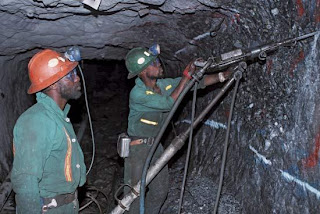The month is still twenty hungry with a delay of the pay slip. When a wall refuses to smile at you even after inserting a plastic card in it means the world is spinning like turning a ‘O’ upside down.
So we are walking downturn me and a colleague we will call Mr. Me, for the sake of this post. Being an extended twenty hungry period of the month, the description of our wallets, and workers drawing a salary is dismal. We couldn’t afford a hole in the middle of the doughnut t have two coins to rub together!
It's was late in the evening as a writer’s muse got me thinking on the greatest phenomenon in the world agenda has always been; the world moving on unmoved, unfazed at human kind hustles and bustle to define its place herein.
I mean, the world?
The economy stings creating a domino effect in people's wallets, with lies aligned with masks to hide their faces of oblivion from cruel reality in this time of the month. The humankind; women , men and children are in a merry go ground to transform corn, that is if afforded, into a corn meal we call ugali in East Africa.
Silvio Berlusconi, Italy PM got his ass kicked out from power, Barry Obama is getting Republicans sniffing his ass in White House because of the bloated economy. Guy Fawkes mask has got a reconnaissance of sought because of economic down turn.
If the big of the world can squirm why not a common mwananchi wa kawaida like you and me? Even encountered, which brings me to our friend Mr. Me, someone who try’s to look economically sound even in the face of economic disglut (cooked this one from disquiet)?
Earlier yesterday Mr. Me, a good time buddy, asks me if I could spare some roasted stuff. Those roasted maize found in every road side in Kenya and rake more millions than roasted meat, nyama choma, but since they are left for hoi polloi will never feaure in marketing the country.
You see, just to digress, nyama choma going down with beer is a social meal, but mahindi choma by the road side is a means of deprivation, a meal that cant be shared in a merry mood. First of all there is no water to wash your hands, making one to disregard his health over germs filled hands (at the back of hand washing campaigns) which is a sign of personal neglect!
Take a test with me Kenyans who chew on the roasted cob always look down trodden and in a pensive mood. Just take a cursory look today!
So back to my friend, the first ones we come across are rather stout and small in size and so we neglect them altogether. We soldier on and good heavens, we come to the next vendor (are they really vendors or roasters) and we go about to pick our like from the still hot.
It’s here that Mr. Me intrigues me. I pick a small rotund cob which looks young and succulent despite its size. On the other hand my main man (stolen from Obama’s Dreams from my father) fuses with the roaster like a broke window shopper before settling for a big mature cob, with me picking the ‘bill’.
Being presumably richly well endowed with concern 4 human kind, I decide 2 let him have that which he desires in life because this way only, do we become great achievers.
a few steps from the point of purchase, Mr. Me complains about his cob.
“This damned maize is hard and tastes funny. I feel like throwing away this piece of shit!” He complains.
I'm then like: what the hell is wrong with you? You insisted in picking this cob as aligned with more grains?
“This cob will upset my stomach with this funny taste” Mr. Me complains, quietly feeling the hurt from his obnoxious behaviour towards my kindness.
What made me like his reaction rather than getting irritated is how he sounded more of a nag looking for attention from the reality of the economy than having any justifiable course.
Mr. Me complains, like lower middle class families facing inflation and completely disowns his role in accountability, or so I think.
And so I get a pissed off with the lad’s tirade and leave him alone as I retire to my abode, which is humble like the hackneyed phrase with a parting shot:
“My main man, i think your insolence has worked me up, see you morrows.”
That was earlier in the evening do now as I wait for my bachelor’s supper to cook it makes me think what really is the concern of man?
Life under recession, I muse, is a vicious cycle accorded to humankind all the days of its life. Inflation hits and the poor suffer most. They try to cover a hole from a leaking wall, but with powers against his strength the water ultimately rushes in and cover his life.
Without a leaning shoulder to guard against politicians insolence, the weak shilling (wherever it is) and skewed international trade balance the poor are completely caught unawares in the daily pangs of life and as a result, they never just anticipate any next, worthy courses of actions.
You live life as it comes; no planning for a tomorrow whose rouse is beyond your grasp.
May be, if only you and me force ourselves out of the boxes we're contained in and get to think outside these boxes, the world would then become one heaven of a place.
(The writer is a graduate of English Literature from Maseno University, Kenya. He teaches at Migori Boys School)



